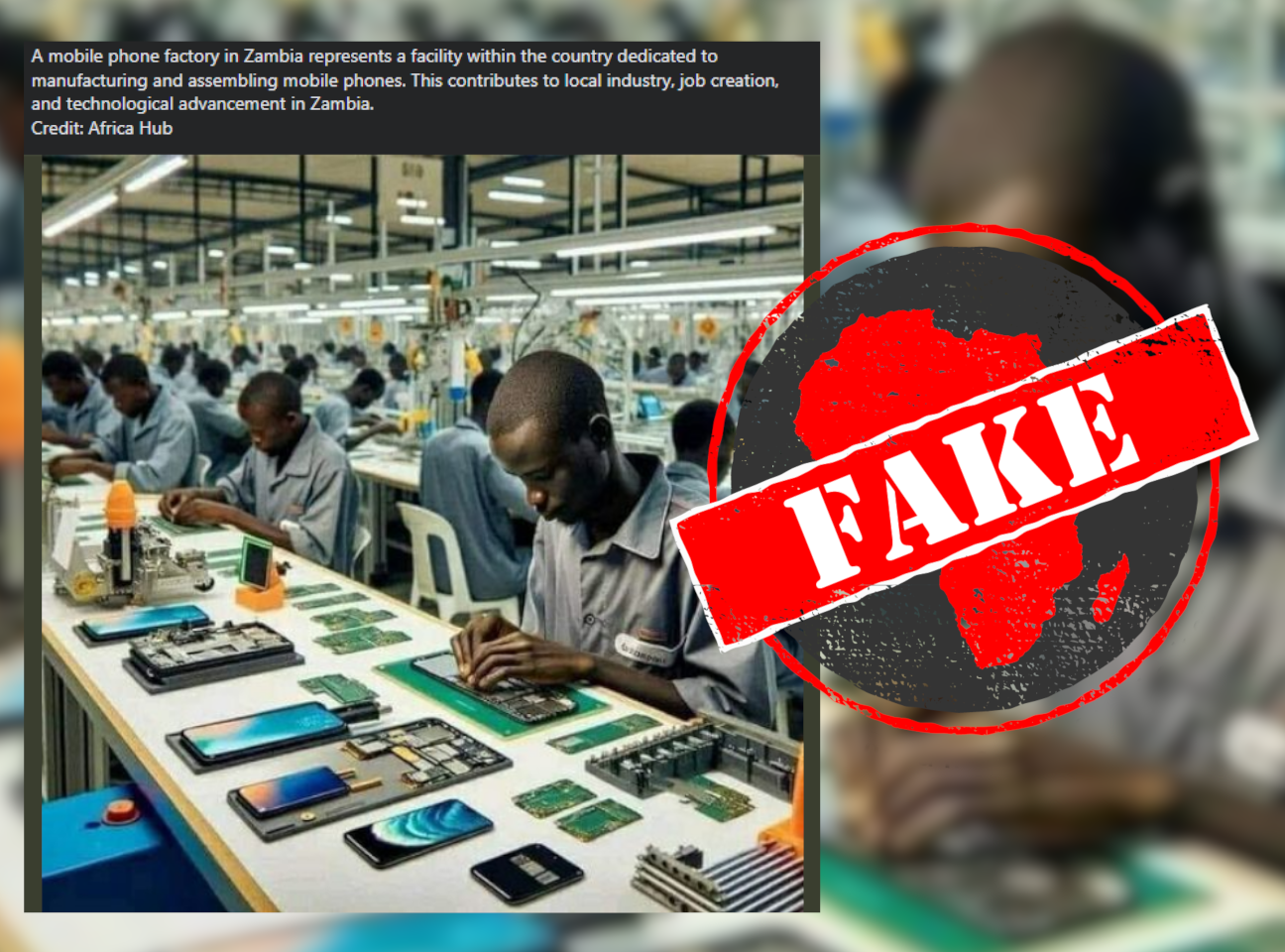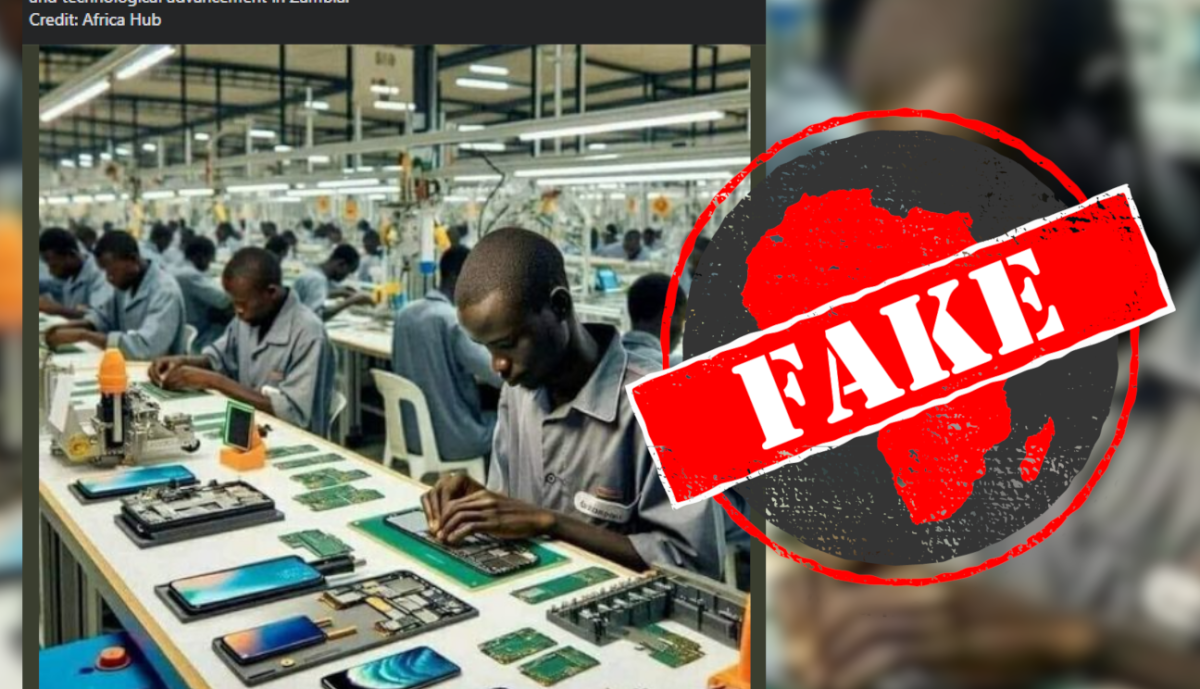IN SHORT: An image posted widely with the claim it shows a cellphone factory in Zambia has been generated using artificial intelligence tools. And no such factory exists yet in the central African country.
An image that seems to show workers assembling smartphones has been circulating on social media since November 2023 and into January 2024 with the claim it’s a mobile phone factory in the central African country of Zambia.
Its captions include:
- Picture of students in a phone manufacturing factory in Zambia.
- The big factory of phone in Zambia.
- A phone’s factory in Zambia, Africa.
- A mobile phone factory in Zambia. Africa on its way to greatness.
But in the comments, several people suggest the image is AI-generated.
Artificial intelligence, or AI, uses complex computer algorithms to perform some tasks otherwise done by humans, like answering questions and writing code. One task it’s really good at is creating images from scratch based on simple instructions.
The image and its claim can also be seen here, here, here and here. But was it really snapped in a Zambian mobile phone factory, or is it artificial? We took a closer look.

Outsmarting AI
There are a few signs that the image was made with AI. (For tips on spotting AI-generated images and videos, see Africa Check’s guide.)
The first sign is that it doesn’t look much like a real smartphone factory. Photos and videos of phone manufacturing show conveyor belts, robotic machinery and workers in protective gear such as gloves and head coverings. None of these are in the image.
The almost identical pose of the workers, with their heads and hands in the same position at the same time, is oddly unnatural. They also seem to be making devices of many different sizes.
Then there’s the worker in the foreground’s name tag, which doesn’t appear to be written in any real alphabet. AI image generators are known to struggle with text. And the edge of a large phone component in front of the worker is incomplete, appearing to merge into the table.
To make sure, Africa Check ran the pic through four AI image detectors.
Is it AI? concluded there was a 65% likelihood it was AI-generated. The other three were more decisive, with Illuminarty putting the probability at 85.5%, Content at Scale at 95% and Umm-Maybe at 96%.
Zambia and China’s ZTE to build smartphone plant in 2024
Even more compelling evidence is the fact that Zambia doesn’t have a mobile phone factory – at the moment.
At the November 2023 Africa Fintech Summit in Lusaka, the country’s capital, Zambian science and technology minister Felix Mutati announced plans for a new smartphone assembly plant to be built in partnership with China’s tech giant ZTE.
It’s expected to be completed in June 2024.
“Building the gadgets in the country will enable us to reduce the cost of smartphones in the country and hence foster inclusivity when it comes to connectivity,” Mutati said in his announcement.
This indicates that smartphones aren’t currently made in Zambia.
In 2009, a locally owned company, M-Tech Zambia, was set up to manufacture less sophisticated feature phones. But it was reported to have struggled with stiff competition from cheaper imports from China. We’ve been unable to find any online mention of the company since 2011.
In any case, the inside of the M-Tech plant – as seen in a photo and a video shot in 2009 – looked nothing like the viral image.
The image doesn’t show a mobile phone factory in Zambia. It’s a computer algorithm’s output on what such a factory might look like.
Republish our content for free
For publishers: what to do if your post is rated false
A fact-checker has rated your Facebook or Instagram post as “false”, “altered”, “partly false” or “missing context”. This could have serious consequences. What do you do?
Click on our guide for the steps you should follow.
Publishers guideAfrica Check teams up with Facebook
Africa Check is a partner in Meta's third-party fact-checking programme to help stop the spread of false information on social media.
The content we rate as “false” will be downgraded on Facebook and Instagram. This means fewer people will see it.
You can also help identify false information on Facebook. This guide explains how.


Add new comment